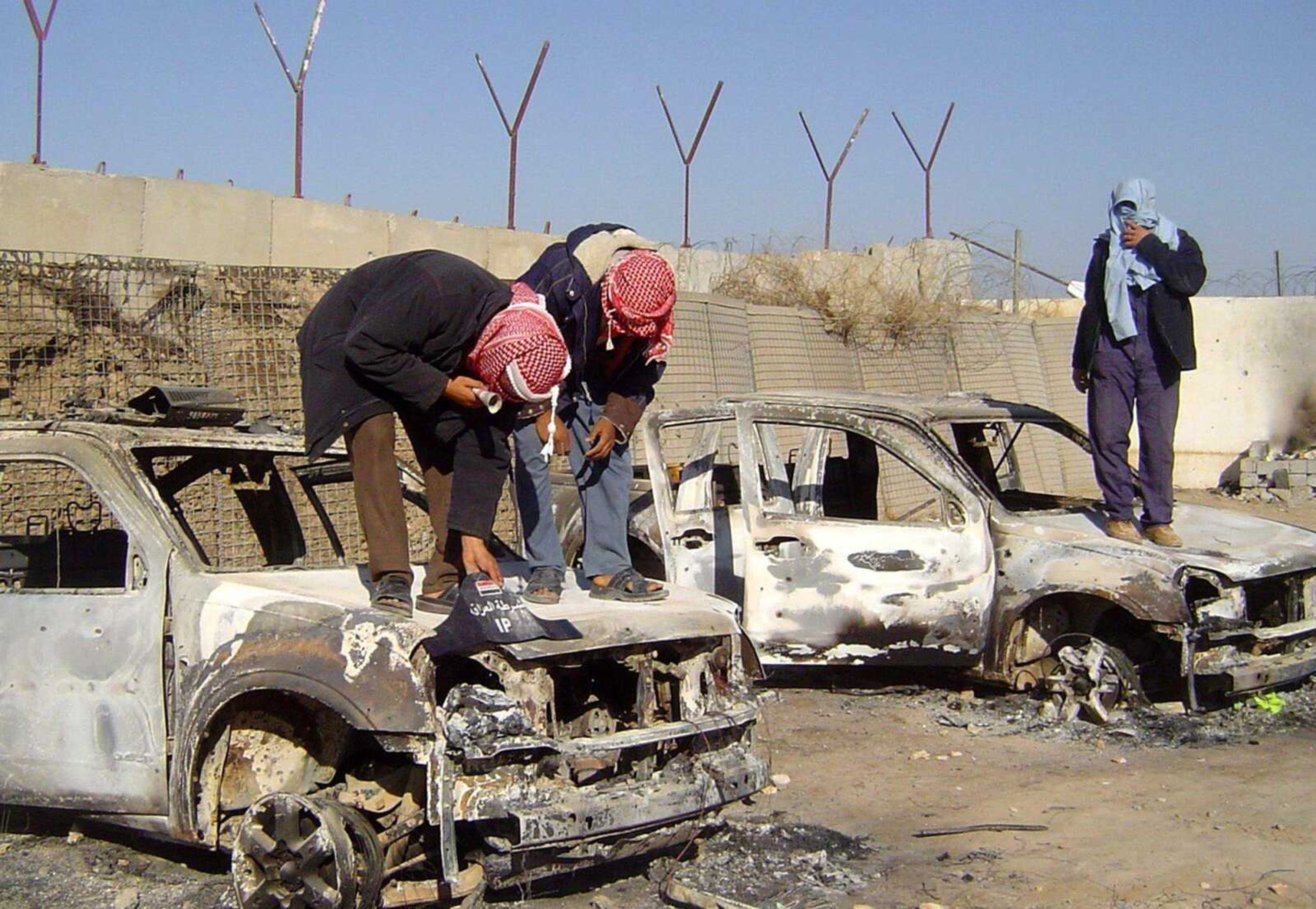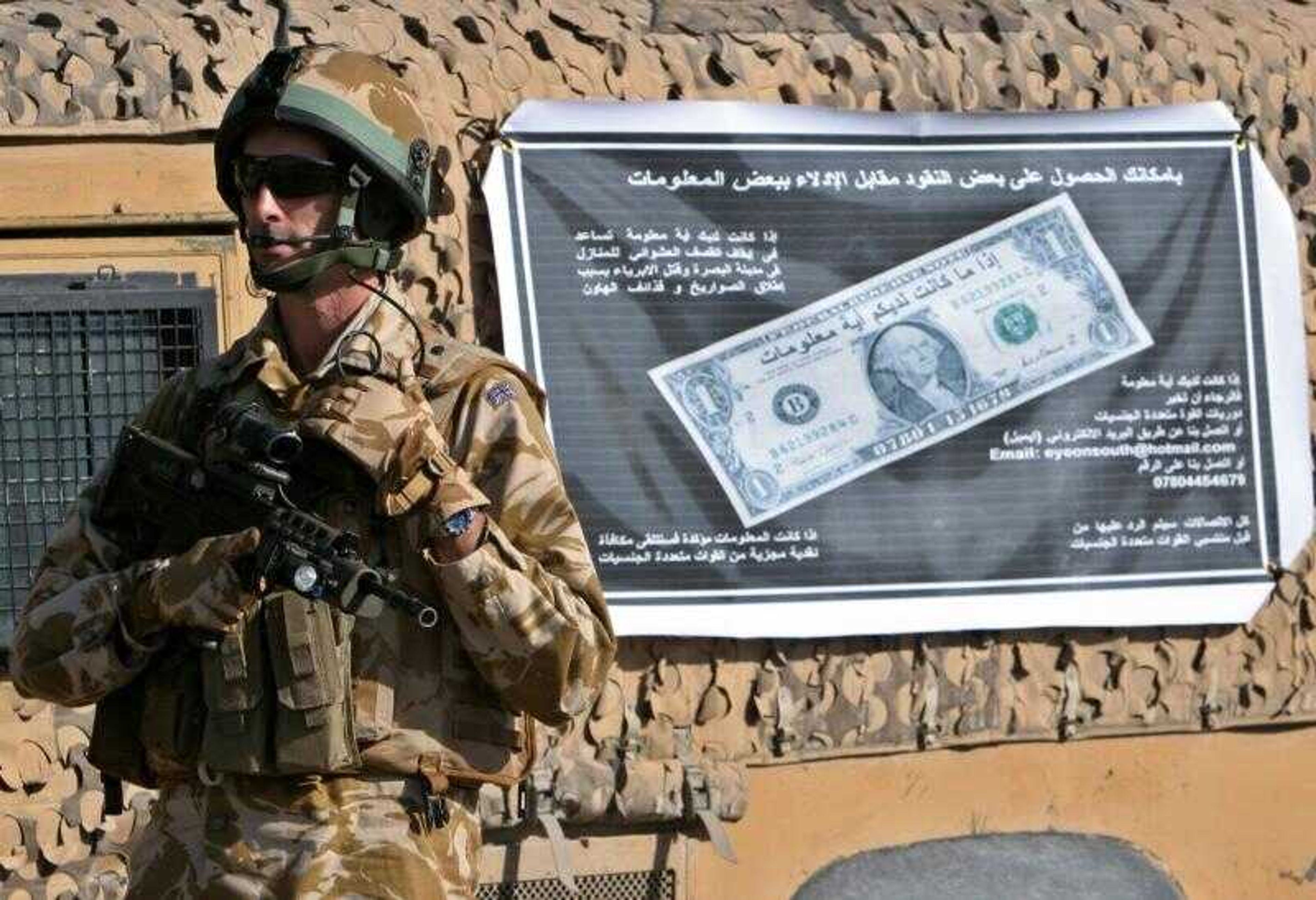Leaders try to halt sectarian violence
BAGHDAD, Iraq -- Sunni, Shiite and Kurdish leaders called on Sunday for an end to Iraq's sectarian conflict and vowed to track down those responsible for the war's deadliest attack. But as they went on national television to try to keep Iraq from sliding into an all-out civil war, fighting between Iraqi security forces and Sunni Arab insurgents raged for a second day in Baqouba, the capital of Diyala province north of Baghdad...
BAGHDAD, Iraq -- Sunni, Shiite and Kurdish leaders called on Sunday for an end to Iraq's sectarian conflict and vowed to track down those responsible for the war's deadliest attack.
But as they went on national television to try to keep Iraq from sliding into an all-out civil war, fighting between Iraqi security forces and Sunni Arab insurgents raged for a second day in Baqouba, the capital of Diyala province north of Baghdad.
By the end of the day, the province's latest casualty figures were a microcosm of the brutality in Iraq: 17 insurgents killed, 15 detained, 20 civilians kidnapped, three bodies found, one U.S. Marine killed and two wounded. The mayor of a municipality also narrowly escaped an assassination attempt that killed one of his guards and wounded three.
During Saturday's fighting in Baqouba, police killed at least 36 insurgents and wounded dozens more.
and rocket-propelled grenades attacked government buildings in the city center, police said. The fighting raged for hours in the city, about 35 miles northeast of Baghdad.

On Saturday, officials including Defense Minister Abdul-Qader al-Obaidi and Gen. George Casey, the top U.S. commander in Iraq, met and decided to fire Diyala's police commander, saying he was unable to stop infiltration of the force by Sunni insurgents, two Iraqi officials said on condition of anonymity as is often the case in areas subjected to widespread fighting and revenge killings.
One of the main challenges for U.S. and British forces in recruiting and training Iraqi military and police forces is that they are often infiltrated by insurgents who kill and kidnap in disguise.
"We promise the great martyrs that we will chase the killers and criminals, the terrorists, Saddamists and Takfiri (Sunni extremists) for viciously trying to divide you," Shiite Prime Minister Nouri al-Maliki, Sunni Parliament speaker Mahmoud al-Mashhadani and Kurdish President Jalal Talabani said in their joint statement on state-run TV.
In addressing "the great martyrs," they were referring to the 215 people who died when suspected Sunni insurgents attacked Sadr City, the capital's main Shiite district, on Thursday.
Al-Maliki also urged his national unity government of Sunnis, Shiites and Kurds to end their public disputes and curb sectarian violence.
"The crisis is political, and it is the politicians who must try to prevent more violence and bloodletting. The terrorist acts are a reflection of the lack of political accord," al-Maliki said.
He is facing strong criticism from top Shiite and Sunni Arab leaders alike as he prepares for a summit in neighboring Jordan with President Bush on Wednesday and Thursday.
Al-Maliki visited Sadr City on Sunday afternoon and paid condolences to some of the relatives of those killed Thursday in the bombings, but as he drove away at the end of his visit, several teenagers hurled stones at his motorcade, residents said.
The challenges that Bush faces across the region were evident to Jordan's King Abdullah, who said the problems in the Middle East go beyond the war in Iraq and that much of the region soon could become engulfed in violence unless the central issues are addressed quickly.
"We could possibly imagine going into 2007 and having three civil wars on our hands," he said, citing conflicts in Iraq, Lebanon and the decades-long strife between the Palestinians and Israelis.
"Therefore, it is time that we really take a strong step forward as part of the international community and make sure we avert the Middle East from a tremendous crisis that I fear, and I see could possibly happen in 2007," he told ABC's "This Week."
Elsewhere, two U.S. Marines were killed Saturday in Anbar province, the area of western Iraq where many Sunni-insurgent groups are based, raising to at least 2,875 the number of U.S. servicemen who have died since the beginning of the Iraq war in March 2003. So far, 56 American service members have died in November.
In Baghdad, the government partially lifted a 24-hour curfew it had imposed in response to the bombing and mortar attack in Sadr City, and some Iraqis went shopping at vegetable and fruit markets after being confined to their homes for two full days.
"The situation is better today because we can finally get out and buy food for the first time in two days," said Hussein Fadel, a Shiite civil servant, as he shopped in Sadr City, where memorial services were still being held for people killed in Thursday's attack. "I hope the city is less tense today."
A traffic ban remained in place, and the capital's streets were empty of cars and trucks, except those of Iraqi and U.S. security forces. On Saturday, the government lifted a 24-hour curfew that had closed the southern port city of Basra to all vehicular traffic and shipping.
But mortar attacks and shootings continued in Baghdad, killing a total of seven people and wounding seven, police said. A tortured body also was found in the Tigris River.
Two mortar rounds hit a U.S. military post in eastern Baghdad, setting it on fire and leaving a dark cloud of smoke above the Baladiyat neighborhood, police and witnesses said. Lt. Col. Scott Bleichwehl, a U.S. military spokesman, confirmed that "indirect fire rounds" hit the area, but declined to provide details. No casualties were reported.
Adnan al-Dulaimi, Sunni lawmaker who heads a large Sunni bloc in Parliament, also escaped unharmed when gunmen attacked his home in Baghdad and were repelled by his armed guards, the legislator said.
A total of 43 people were killed or found dead in Iraq on Sunday, police said.
An Iraqi security detainee died at a U.S. prison in southern Iraq two days after being taken to a hospital after suffering chest pains, the military said. The detainee, whose name was not given, died Saturday "from what appears to be natural causes" at Camp Bucca near Basra, the military said.
Connect with the Southeast Missourian Newsroom:
For corrections to this story or other insights for the editor, click here. To submit a letter to the editor, click here. To learn about the Southeast Missourian’s AI Policy, click here.









